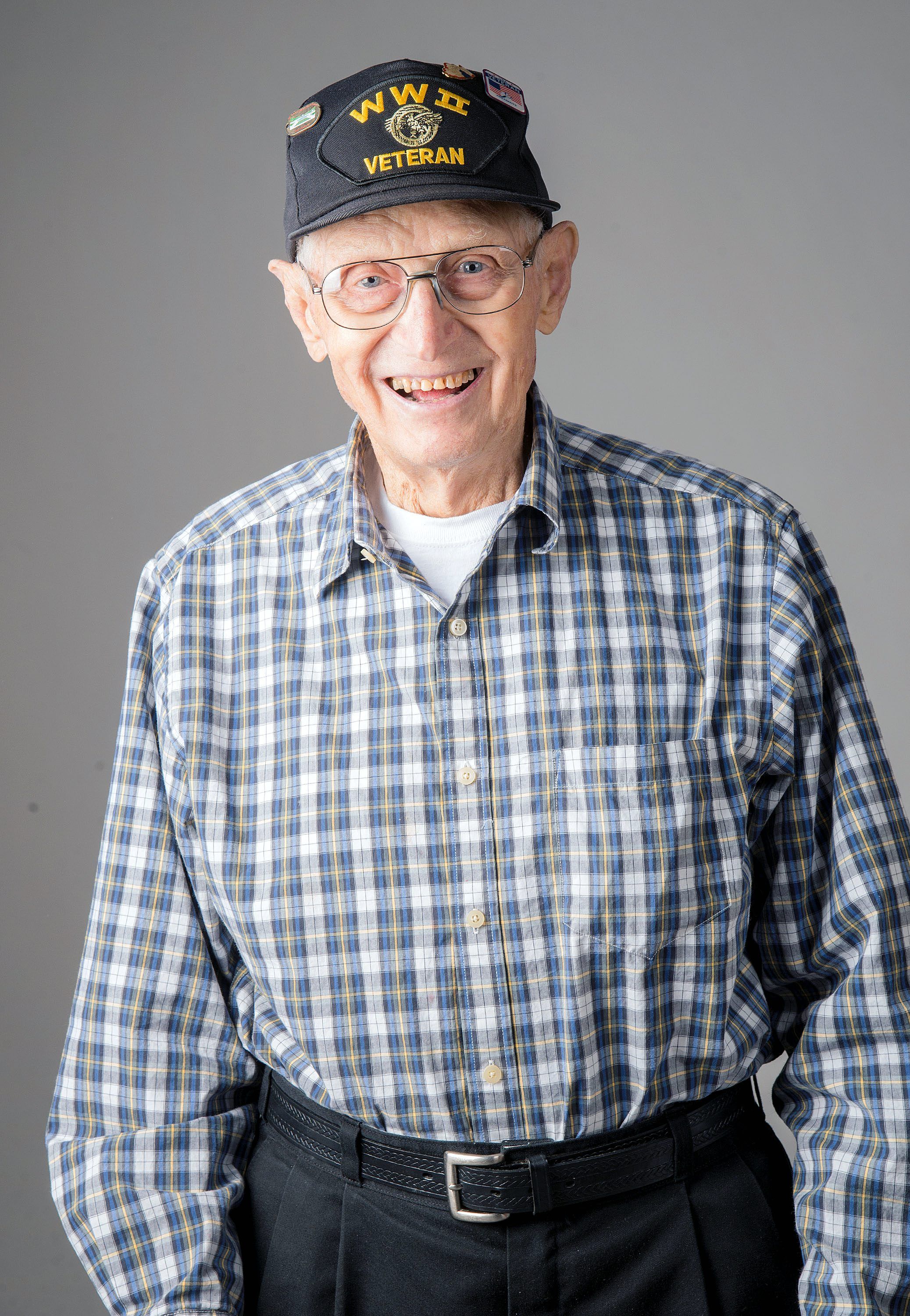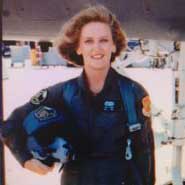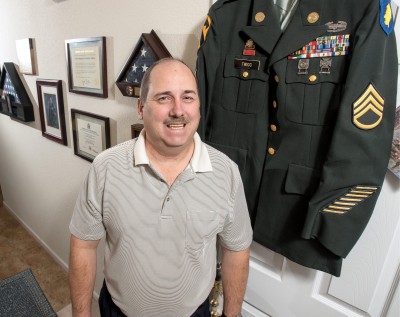Chet Bleich
By Paul Wood

Photo By Rick Danzl/The News-Gazette
For the confusion of war, it’s hard to top the Battle of the Bulge, where Chet Bleich and six other soldiers watched the Germans — supposedly on the run — overrun a nearby hill, and had only machine guns to counter the enemy’s tanks.
Only the day before, Bleich’s unit was advancing toward Berlin, World War II seemed to be winding down in Europe and there were signs everywhere of German desperation.
On the German border — the 91-year-old no longer remembers the name of the town — Bleich saw 10- to 12-year-old enemy soldiers trying to infiltrate American lines.
Pvt. Bleich, a Ford County native, was a machine gunner, but he had qualms about using the weapon.
“And then you’re supposed to shoot these little devils? Like hell I will,” the Bronze Star-winner said of the German boys.
But by the next day, it was the Allied Forces who were on the run.
The Battle of the Bulge caught U.S. forces off-guard Dec. 16, and for the next few days, all that had been accomplished since D-Day seemed in jeopardy.
Bleich witnessed a heavy barrage, followed immediately by a German advance. He thinks many German troops may have been killed by their own barrage.
“As soon as the shells quit, the Germans were right there,” Bleich said.
His group, which had no officers, was staying in trenches the Germans built. A lieutenant arrived to tell them to move south.
They crossed the Our River on a precarious cable bridge. Bleich was carrying the machine gun’s tripod, but others had boxes of ammo, so it amazes him that the crossing worked.
“It was hard, but if you want to live, you’ll do it,” Bleich said.
In the confusion, his group had lost or ditched most of their food, and only ate well when they found a cellar full of apples and pears. They endured late December. The battle was famous for its snows.
Several days later, in Lux- embourg and feeling safe, near a dirt mound at a T intersection, Bleich’s group took a break — they were wrestling, he recalled — when a mortar shell hit.
Two of the seven were seriously hurt, and all of them had some wounds.
Bleich could walk, barely, so medics told him to move on, and cross a bridge over a ditch.
“So I took off by myself,” said Bleich, who never reunited with his friends.
At 2 or 3 a.m., he heard a vehicle — for all he knew, a German truck. But it was a jeep full of medics, who got him to a tent hospital. That was about Dec. 23.
He woke up on Christmas Day, glad to look down and see his feet were still there. Still, he had mortar wounds in several places.
He daydreamed of a “golden wound,” one bad enough to get him home. As it was, he spent about a month in a French hospital and three months in an English one.
“How great it was to have an American nurse,” Bleich said of a woman who looked high school age but took care of him.
By the time Bleich left the hospital, it was clear Adolf Hitler would fall .
Other than guarding Ger- man prisoners, Bleich’s war was over, though he would be slightly disabled for the rest of his life.
It didn’t stop him from returning to farming, or later, working in construction based out of Watseka, with Morton Buildings.
He found the love of his life, Darline, who had no love for farming. They had four children, 11 grandchildren and five great-grandchildren, and lived in Crescent City.
Darline died last year after almost 65 years of marriage. It has been hard for him. Son Mike Bleich said his dad rarely talked about the war until he went on an Honor Flight to Washington, D.C., in 2012.
But since his wife’s passing, Bleich thinks about the war all the time — and not always happy memories.
“If I had Darline here, I wouldn’t be thinking so much about those times,” he said ruefully.
Do you know a veteran who could share a story about military service? Contact staff writer Paul Wood at pwood@news-gazette.com.
Read more stories from local veterans:
 Ray Wolst
RANTOUL — Vietnam era veteran Ray Wolst is on Tuesday’s honor flight. “I’m pretty proud of that, and I’ve never been to …
Ray Wolst
RANTOUL — Vietnam era veteran Ray Wolst is on Tuesday’s honor flight. “I’m pretty proud of that, and I’ve never been to …
 Terri Ann Daniels
URBANA — A lesson from serving on a live weapons crew: “If you see the weapons troops running, just run,” said Senior Ai …
Terri Ann Daniels
URBANA — A lesson from serving on a live weapons crew: “If you see the weapons troops running, just run,” said Senior Ai …
 Patrick J. Twigg
CHAMPAIGN — Retired Staff Sgt. Patrick J. Twigg served overseas in Operations Desert Shield and Desert Storm and Iraqi F …
Patrick J. Twigg
CHAMPAIGN — Retired Staff Sgt. Patrick J. Twigg served overseas in Operations Desert Shield and Desert Storm and Iraqi F …